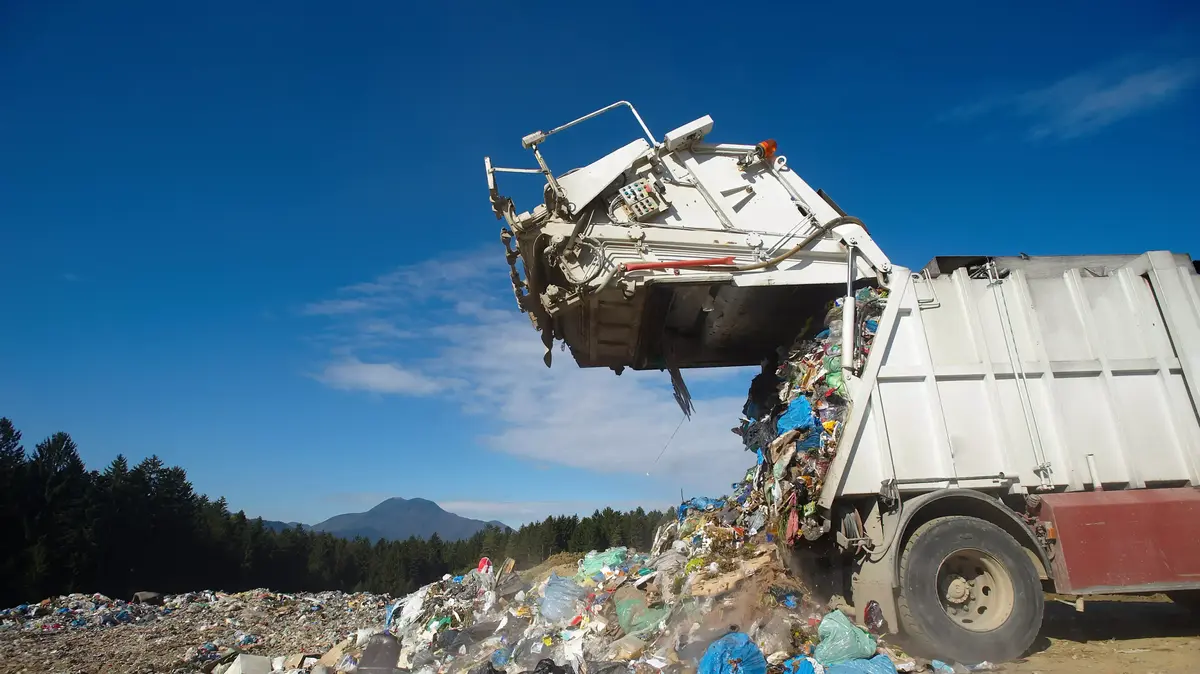931 million tons of food ended up in the trash in 2019.Andrey Popov / Getty Images
17% of the food available to consumers ends up in the garbage of homes, businesses, restaurants and other food services.
Specifically, around 931 million tons of food ended up being wasted in the world in 2019, not counting the losses generated during production and transport.
This is indicated by a report from the United Nations Environment Program (UNEP) presented this Thursday that denounces the social and environmental implications of this waste.
While these huge amounts of food are being lost, 690 million people in the world (almost 9% of the population) suffer from hunger.
The study looks at waste in three specific fields: households, food services (such as restaurants), and retail.
And it concludes that the main route of loss is located in homes, which accumulate 61% of the 931 million tons of food wasted in 2019. It is followed by restaurants and other food services (26%) and retail trade (13 %).
The report has been prepared by analysts from UNEP and the British NGO WRAP.
The authors have developed a classification of all the countries of the world (although they recognize that in only fifty data they are really of good quality).
According to their estimates, each inhabitant of the planet wasted an average of 121 kilos of food in 2019. Only in households, the
per capita
figure
amounts to 74 kilos of food;
in Spain that amount is somewhat higher, 77 kilograms, although it is not among the countries that waste the most.
The study places Nigeria, with 189 kilos per inhabitant, as the country in which the most food
per capita
ends up in household garbage.
The results of other countries, such as the United States, with only 59 kilos per inhabitant per year are striking.
UNEP contends that this report presents the most comprehensive collection, analysis and modeling of data on food waste to date.
He admits that the results differ from the narratives carried out so far, "which concentrated consumer food waste in developed countries and production, storage and transportation losses in developing countries."
“The generation of food waste
per capita
in households is very similar between the different groups of countries according to their income, which suggests that food waste is equally relevant in high, upper-middle and lower-middle-income countries. ”, Adds the study.
"For a long time it was assumed that household food waste was a major problem only in developed countries," said Marcus Gover, CEO of WRAP on Thursday.
"But things are not so clear," he added.
The study only focuses on one part of the problem of food loss: the final stage, which involves the retail trade and consumption of those foods.
Other reports made so far - for example, those produced by FAO (the Food and Agriculture Organization of the United Nations) - have raised the rate of food lost to 30%.
But in that case the entire chain is taken into account, that is, from losses in production and transport to waste in homes, shops and restaurants.
Consequences
The index prepared by the authors of the report aims to help governments to measure waste well and to tackle the problem.
The goal that countries set for themselves with the Sustainable Development Goals is to halve
per capita
food waste
worldwide by 2030.
But UNEP has also influenced the environmental implications of the problem.
For example, between 8% and 10% of global greenhouse gas emissions are associated with food that is not consumed, both due to losses in production and transport processes and in the final consumption stage.
That same data was the one handled by the monographic report presented in 2019 by the group of scientific experts that advise the UN on climate change issues, known as the IPCC.
In that study, the researchers warned that the problem of global warming has already acquired such magnitude that it is not enough to act only on the energy system, but that changes must be made in all areas, also in the food sector.
Failure to governments in the first review of the Paris Agreement against global warming
Marta G. Rivera Ferre, the director of the Chair of Agroecology and Food Systems at the University of Vic, is a member of the IPCC and one of the authors of the 2019 study. Remember that food losses and waste not only imply an increase in Emissions also have important impacts on water consumption, pesticide pollution, land use or the loss of biodiversity.
"It's a problem with the production model," Rivera explains.
The UN on Thursday asked countries to include food waste reduction targets in the national emission cut plans that they have to present under the Paris Agreement against climate change.
The study recalls that only 11 of the almost 200 countries that are within the pact against warming refer to food losses in their climate plans.
“If we want to take seriously the fight against climate change, the loss of nature and biodiversity, and pollution and waste, companies, governments and citizens around the world have to do their part to reduce the food waste ”, Inger Andersen, the executive director of UNEP, warned this Thursday.
To know the most important news on Climate and Environment of EL PAÍS, sign up here for our
weekly
newsletter
.
Follow the Climate and Environment section on
and

/cloudfront-eu-central-1.images.arcpublishing.com/prisa/ZO5F6CQHIZHG3KC6SMZGGSKFKM.jpg)






